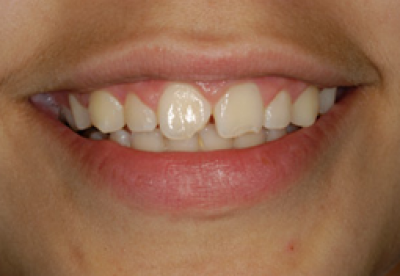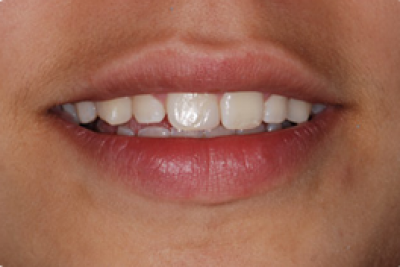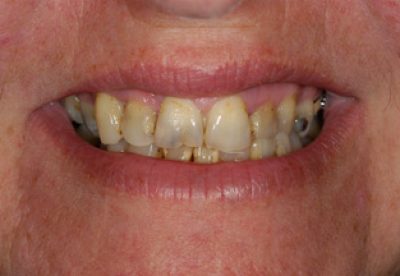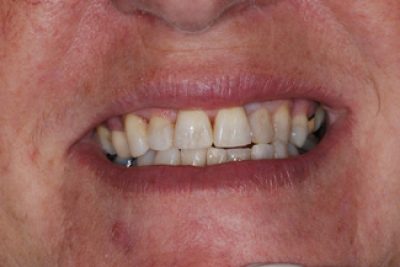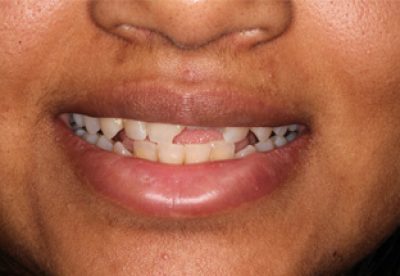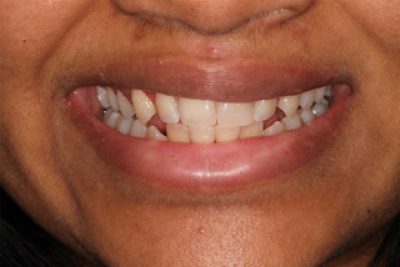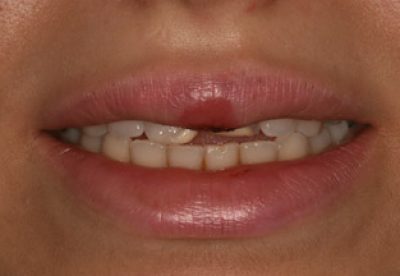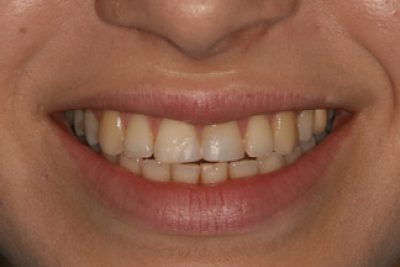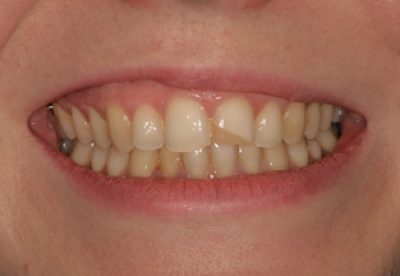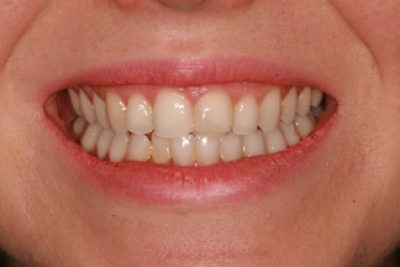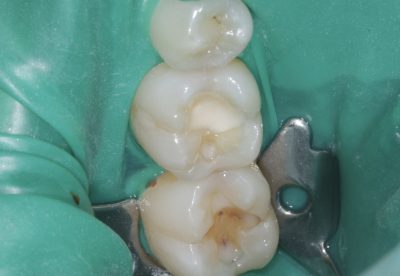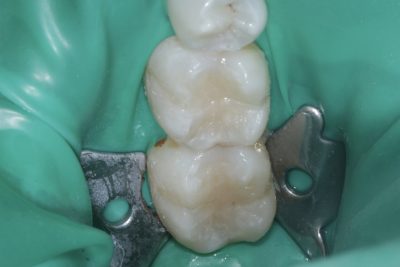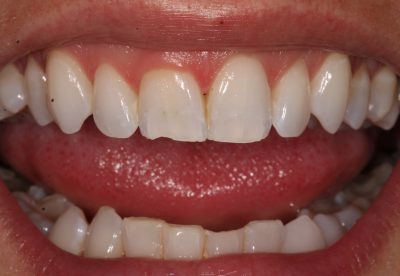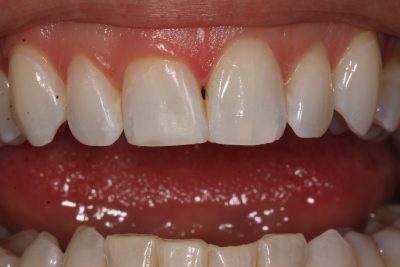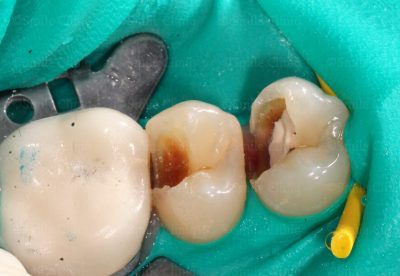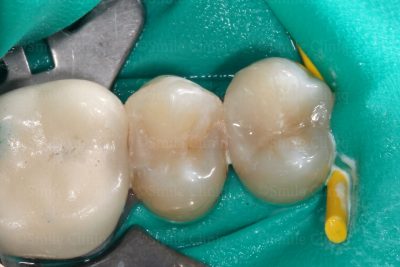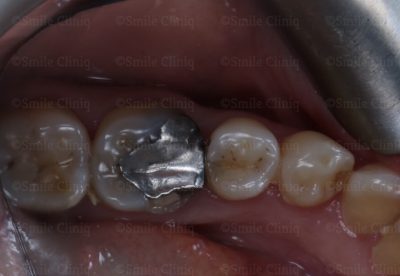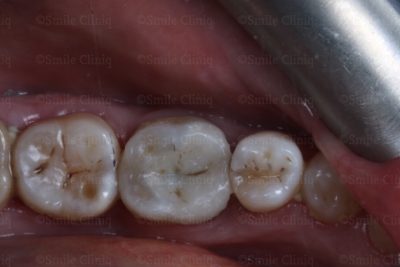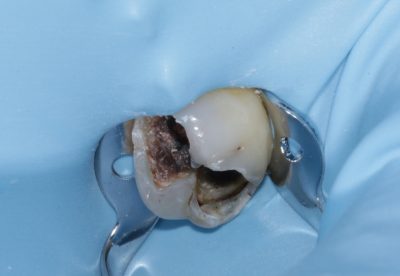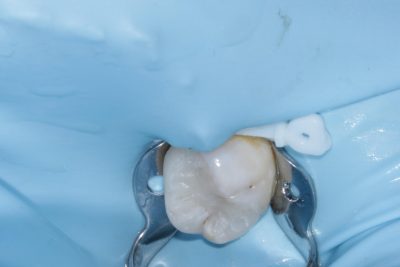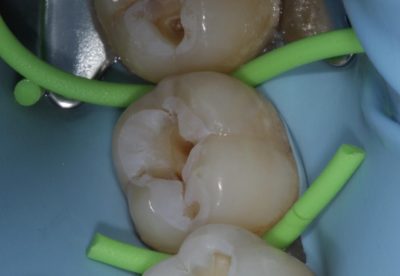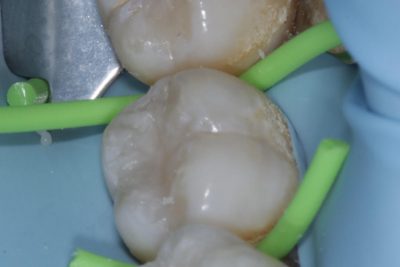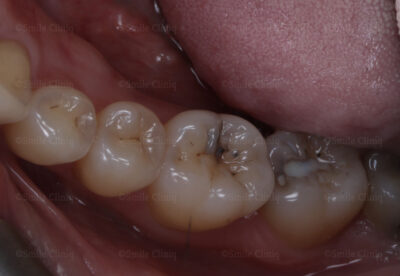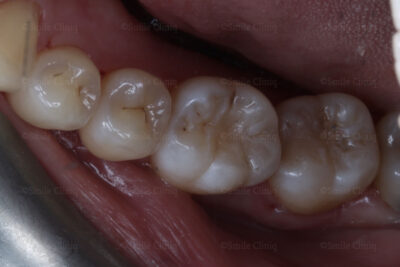Before and After Gallery
White Fillings in London
Composite fillings are white tooth fillings. We use high quality, strong, reliable, and aesthetic composites, such as Venus from Hereus Kulzer and G-ænial from GC (which have low shrinkage properties to prevent post-operative sensitivity) in our white fillings London treatments. We ensure a particular shade is selected to match the natural shade of your teeth.
White tooth fillings in London are used to replace old amalgam (metal based) cavity fillings, or to restore decayed, chipped, and cracked teeth. Composite bonding is a process in which tooth coloured composite filling materials are applied to a tooth’s surface, hand crafted and sculpted into shape, hardened, and then the white tooth filling is polished for the ultimate natural appearance.
Often, two or more shades of composite filling are used to build up the dentine and then the enamel shade of your tooth as no tooth is one colour all over. Instead, the tooth near the gum is darker, whereas the area of the tooth at the biting surface is more translucent and lighter. If plain, bright white fillings were used it wouldn’t look natural, so we take care to match the shade to your teeth for an invisible effect.
Provision of direct composite restorations is relatively quick and one of the most cost effective cosmetic dental procedures. Composite filling resin is a versatile, clinically proven, successful, and aesthetic material that can be used in many common clinical situations.
Composite Fillings in London Before & After
Below is an example of what composite fillings look like before and after:
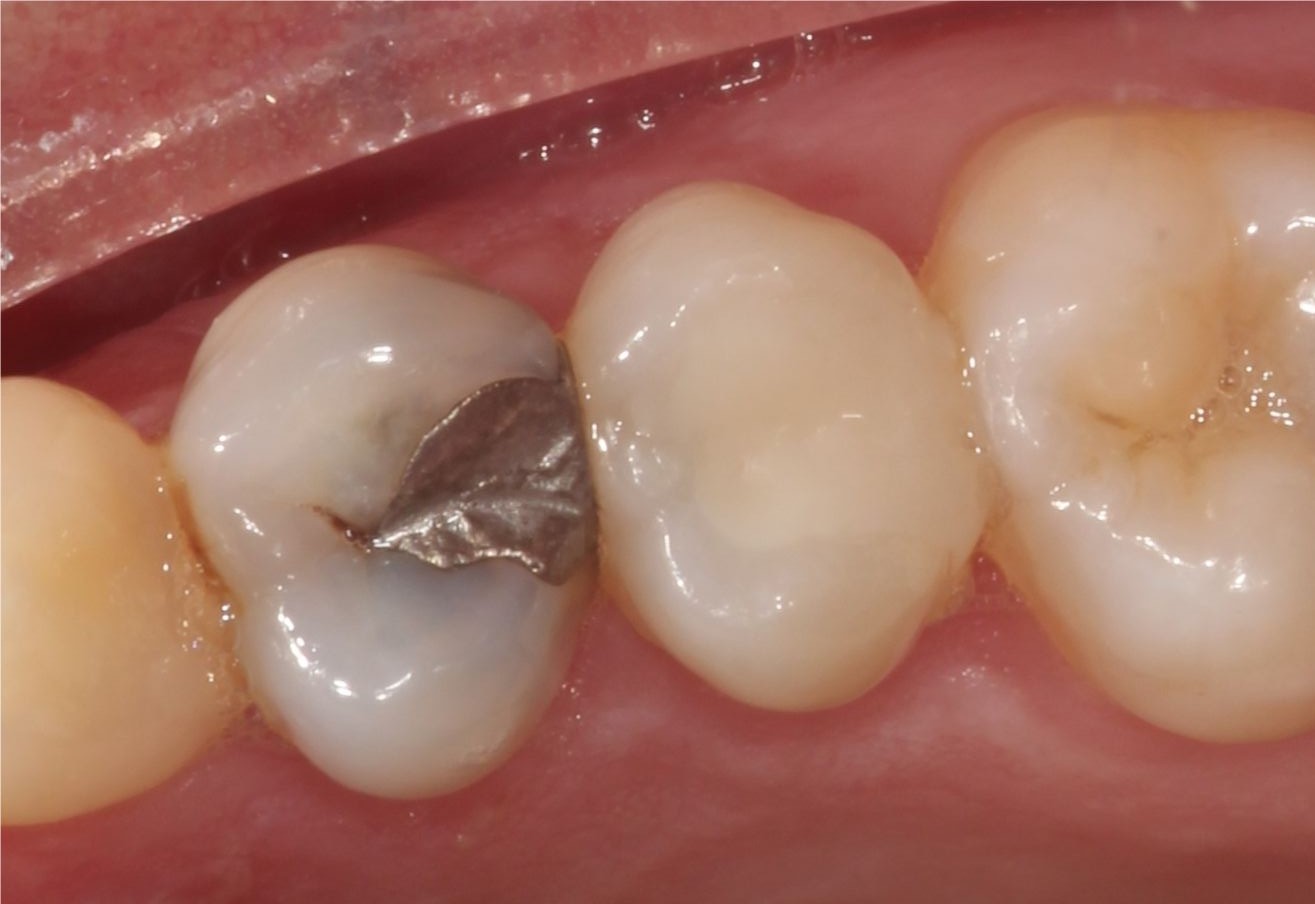
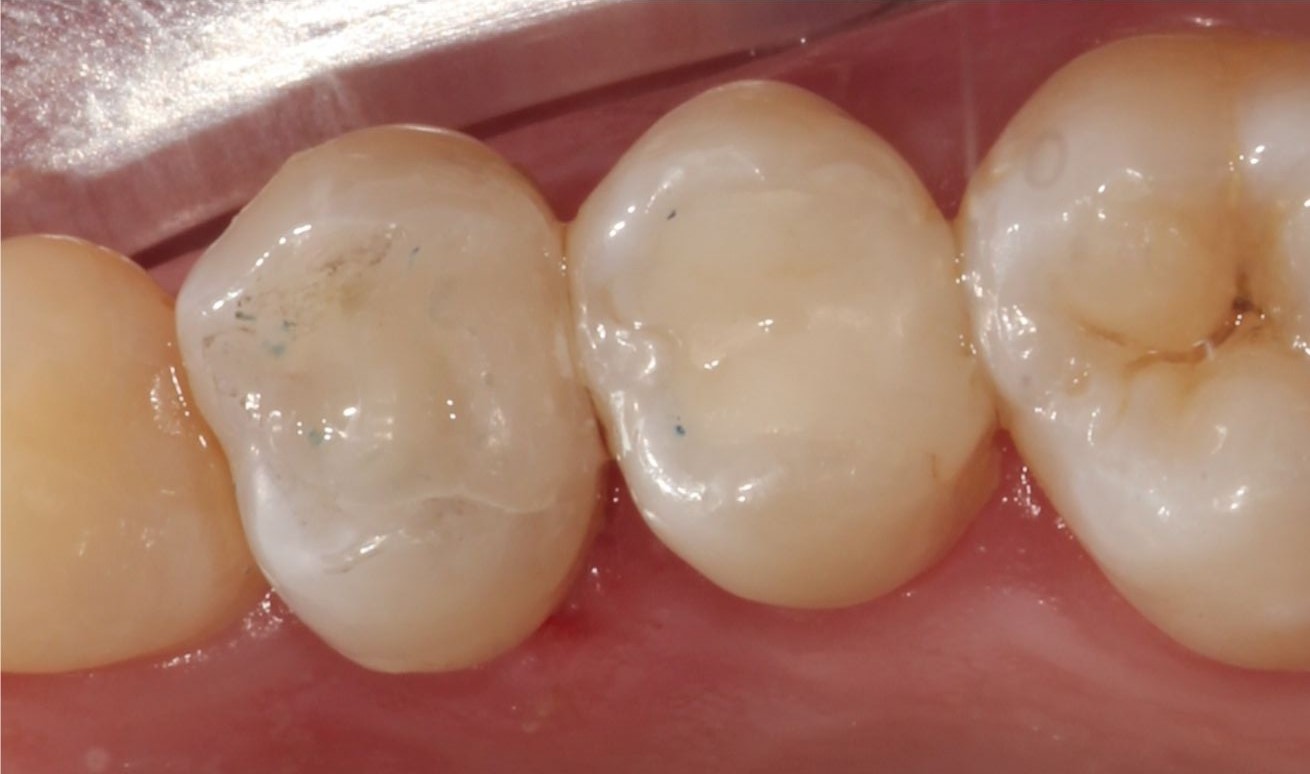
As you can see, composite filling cost London ranges in price depending on the size you need. Please contact our specialist team of dentists in London for a personal quote depending on your needs. If you have a membership, you will see you are entitled to a discount too.
White Fillings (non mercury)
Smile Cliniq’s White Fillings London Treatment
The procedure of a composite filling in London is to first isolate the tooth adequately from the oral environment, sometimes using a rubber dam material to protect the composite from moisture. We then remove the decay inside the tooth or the old mercury filling and shape the cavity.
An etchant gel, and occasionally an aluminium oxide blaster is applied, which roughens the surface of the tooth on a microscopic level which promotes adherence (micro mechanical retention) of the composite to the tooth. A good quality bond is then applied to allow the filling to “bond” to the dentine.
We use Optibond fl, or similar, which is the industry gold standard of bonding agents for composite fillings. Optibond fl has consistently been found to have the highest bond strengths, which reduces post-op sensitivity and reduces failure of restorations. The selected shade of composite is placed inside the cavity in small increments, curing each time with a blue light (around 450nm wavelength) to initiate the polymerisation reaction. Incremental build up is important to minimise shrinkage of the white fillings and stresses on the tooth, caused by the setting of the composite filling. The restoration is finally shaped and polished at the surface and margins to allow perfect bite and prevent food trapping.
Glass Ionomer White Fillings in London & Bonding
Another white tooth filling restoration used at Smile Cliniq is a type of glass ionomer filling material called Fuji IX Extra. The beneficial characteristic of this material for white fillings in London is that it sticks to the tooth surface well and releases fluoride. Fuji IX Extra compared to other class ionomer materials releases much more fluoride (up to 5 times more). In deep restorations a Fugi IX filling maybe placed, underneath composite restorations to protect the pulp (nerve tissues) and minimise the possibility of future problems, such as root canal treatments.
Restoration white filling cost London depends on their size, complexity of case, whether a base is required to protect the nerve and the amount of time needed.
All occlusal (bite surface) white tooth filling restorations have a 5-year guarantee unless otherwise specified. Buccal restorations (side of tooth) have a 2-year guarantee.
White Fillings in London Procedure
The procedure you experience with our London dentist will depend on the reason for prescribing the treatment. In some instances, there is no need for drilling or preparation of your tooth, the need for local anaesthesia may also be eliminated.
Your dentist selects the shade of composite filling that matches your tooth. The tooth surface will be etched with an acid gel then coated with a liquid that allows the tooth-coloured resin to bond to your tooth. The composite resin is then sculpted, shaped, and hardened with a special light. The material will be further trimmed and shaped. Once this has been completed, meticulous polishing will be undertaken.
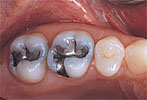
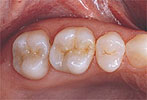
The Lifespan of Composite Fillings in London
You may experience mild sensitivity in the immediate post-operative period, in the vast number of cases this is temporary. Composite fillings in London and restorations usually last several years before needing to be repaired or replaced.
Cigarette smoking, tea, coffee, and other pigmented substances may discolour composite restorations. It is therefore important to employ a strict oral dental hygiene regime encompassing professional hygiene intervention. Regular recall and review are required to ensure the status of your composite restorations.
Very rarely, if the sensitivity and pain persist due to having a very deep composite filling, then root canal treatment may become necessary. Over time, white fillings can uncommonly stain, debond or fracture, however current research suggests they should last for 12 years on average. Occasionally if the decay or fracture is very large it’s advisable to have a dental crown or an on-lay instead of a filling to reduce the risk of tooth or filling fracture.
An example of how decay develops
White Fillings in London FAQs
How Long does the appointment for composite fillings in London take?
Composite fillings in London are usually carried out in a single visit of 30 minutes; however, this maybe longer or involve multiple visits depending on the extent, complexity, and number of restorations you require. We only use high quality, strong, reliable, and aesthetic composites such as Venus from Hereus Kulzer, and G-aenial from GC.
Are teeth more sensitive with composite fillings in London?
The composite material/ resin used in composite fillings in London causes no sensitivity. You can still feel sensations to a point (hot or cold drinks for example), but generally composite fillings in London don’t create additional sensitivity.
Will composite fillings in London stain over time?
Although you can’t prevent staining 100% of the time, composite fillings in London should remain “tooth coloured” for a long time as they are highly polished.
You may need to have your composite fillings polished or replaced over time dependant on your diet and how you are maintaining your restorations.
Click here for more information and consent- Please click here for our fees guide.
- Please click here for examples of our work
- For further details of our techniques, materials and techniques please click here.
- Please click here for our guide to maintaining your oral hygiene.
- Interest free payment options are available
- Return to the top of the page










Finchley
020 3582 8621
St Johns Wood
020 3627 8732
Smile Cliniq Limited. A company registered in England and Wales. Company number 08279068.
Registered office: C/O TG Associates 7 Jardine House, Harrovian Business Village, Bessborough Road, Harrow, Middlesex, HA1 3EX
Terms of Use | Privacy Policy | Health & Safety Charter | Complaints procedure | Data Protection | Cookie Settings
Website by Digimax Dental









